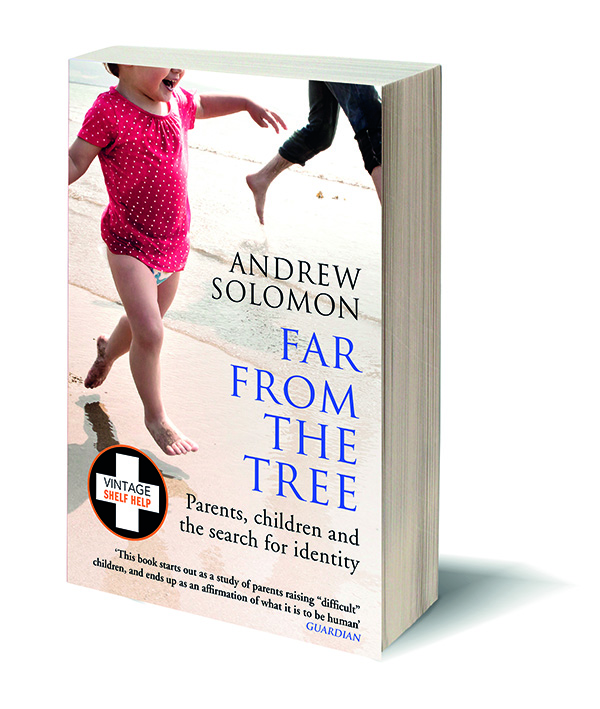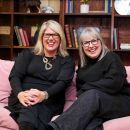Shelf Help: Interview with Andrew Solomon
Author Andrew Solomon talks to us about his new book, Far From The Tree, which is our Shelf Help title for March

Do you think the heart of the book is that perennial opposition between nature and nurture?
Andrew Solomon: I don’t think one can disentangle nature and nurture. A child is born with particular genetic vulnerabilities (nature), which get triggered (or not) by external experiences (nurture), which help activate other parts of nature, which cause one to seek out other parts of nurture. Our relationship with our environment is so deeply rooted it would be like separating the dancer from the dance.
One of the most thought-provoking aspects of the book is your suggestion that the ‘able’ default to thinking of themselves as care-givers who can maximise potential, accommodate disability and ameliorate any suffering of the ‘disabled’, and how that viewpoint can compromise the autonomy of the disabled individual, or even ‘subjugate’ them. Could you explain more?
I think always of autism activist Jim Sinclair, who said, ‘Autism isn’t something a person has, or a ‘shell’ that a person is trapped inside. There’s no normal child hidden behind the autism. Autism is a way of being. It is pervasive; it colours every experience, sensation, perception, thought, emotion, and encounter, every aspect of existence. It is not possible to separate the autism from the person – and if it were possible, the person you'd have left would not be the same person you started with.’ Many autistic people have a deep sense of identity based on their condition; so do people with other differences. While I started off very suspicious about these claims to identity, I ultimately came to respect them.
You also explore the phenomenon of child prodigies. These children are also different, often radically so, from their immediate family and their peers. What did you discover?
Having a child who is radically different from you is difficult, whether it is a difference we construct negatively, such as disability, or one we construct positively, such as prodigious talent. The parents of a child prodigy must choose for him either the company of adults who can understand his sophistication but who aren’t usually interested in the emotional life of a small child to whom they are not related, or age peers who won’t understand a word he is saying. Like parents of children with disabilities, parents of such children must learn a new vocabulary in order to relate to their child; they must find other parents dealing with a similar situation and bond with them; they must devote a great deal of time to finding friends for their child.
Our thoughts about parenting, or about physical or mental conditions, aren’t static. You talk about this in personal terms when you discuss attitudes towards homosexuality. How much was the knowledge of this constantly changing picture in your mind throughout the book?
The way we used to look at difference has been radically altered, and with that, the life course for people with differences has changed. Those with physical difficulties are far more likely to find an environment built to their needs; there are access ramps, special lifts and so on, everywhere. People with autism who would once have just been deemed peculiar and consigned to the margins of society are now finding community with others who share their condition. Each of these elements of progress has been noted, but the connection among them, the basic shift in how we define humanity, has not had its due.
What are you working on next? In an era when mothers are increasingly likely to work and fathers are increasingly likely to change nappies, there’s a gradual merging of our ideals of motherhood and fatherhood into a single thing called parenthood. What is it? How has it changed? I’ll be looking at that, and how it applies to single mothers by choice, to gay families, to open adoptions, and to all the other new structures of family in the 21st century.
Andrew Solomon is a writer and activist working in politics, culture and psychology, and a lecturer in psychiatry at Cornell University. Far From The Tree is published by Vintage in paperback at £11.99, ebook available. You can find more information on Vintage Shelf Help here, and for more on Andrew Solomon see his website and TEDtalk on the book








